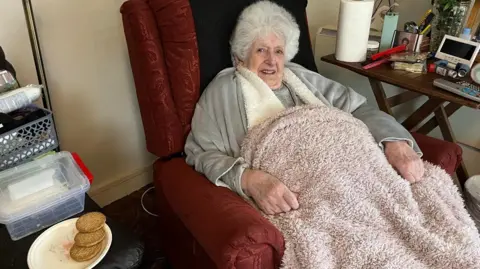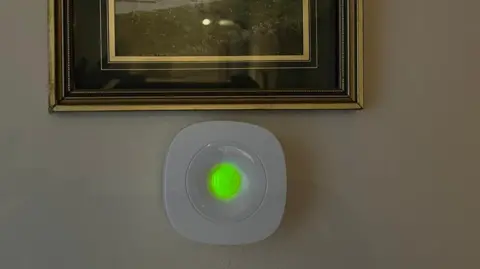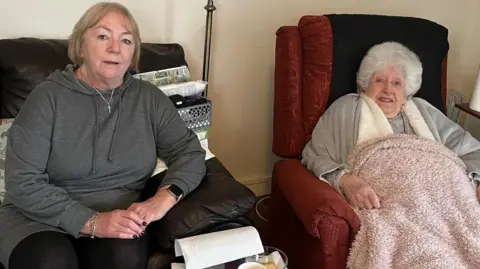Trial uses AI to help care for people at home
 BBC
BBCAn initiative using artificial intelligence (AI) sensors in the homes of vulnerable people to help assist in their care is being trialled by a south London council.
Sutton Council said the scheme seeks to provide a safety net for vulnerable people, allowing them to remain in their own home for longer, while offering peace of mind for their families and carers.
The sensors track movement, temperature, light and the use of appliances, such as kettles and microwaves, to identify routines and alert carers when help is needed.
Margaret Linehan, an 86 year-old with dementia, is one of 1,287 households in Sutton currently using the tech-enabled care and says she's pleased to have it.
"It's just for if I fall over or anything. It's great," she said.
The software analyses data to detect deviations from established patterns of behaviour.
When a change is detected, such as a missed meal, a forgotten cup of tea, a door left open for too long, or a fall, the system alerts the appropriate people.

Bradley Cooper, a tech enabled social care manager, said people's routines are "learnt over a period of time" meaning it can recognise "when something may be declining or something significant has happened, like a fall".
In the past year, over 1,800 falls were detected by the system and referred to the Urgent Community Response Service, the council said.
Margaret's daughter-in-law, Marianne Linehan, uses a linked app to get alerts and check on her activity.
"I can look in in the mornings and detect her movements throughout the night and know that she is moving, she's not on the floor or nothing drastic has happened," she said.

Margaret said on one occasion when she "fancied a cup of tea and a biscuit" at 02:00, her son got in touch to see what was happening.
Margaret said her son asked "do you know what time it is?", to which she replied: "I didn't think to know what time, I just wanted a cup of tea and a biscuit."
The sensors do not include cameras or microphones, ensuring privacy is maintained, the council said.
The initiative is part of a wider government program being rolled out by the Department for Science, Innovation and Technology to utilise AI to save money in public services.
Listen to the best of BBC Radio London on Sounds and follow BBC London on Facebook, X and Instagram. Send your story ideas to [email protected]
